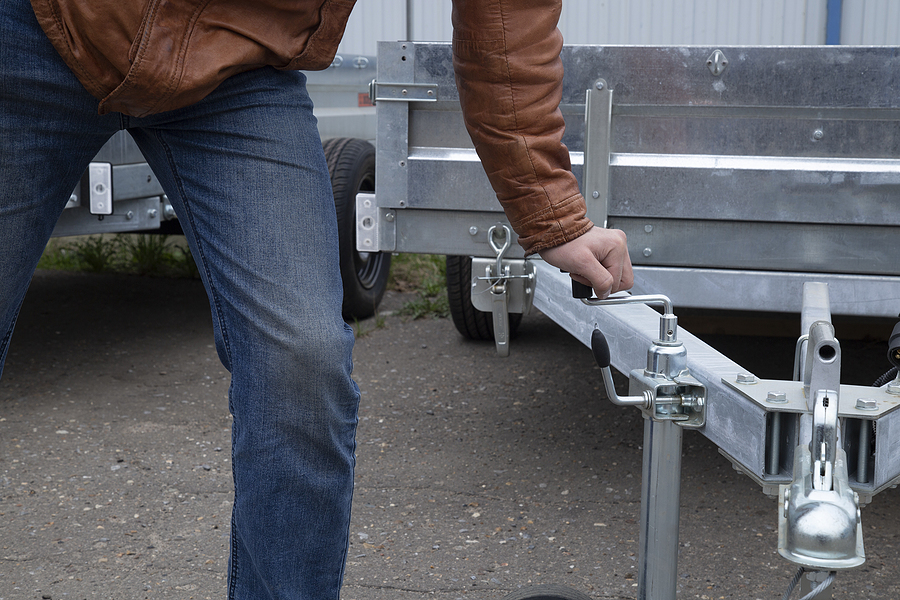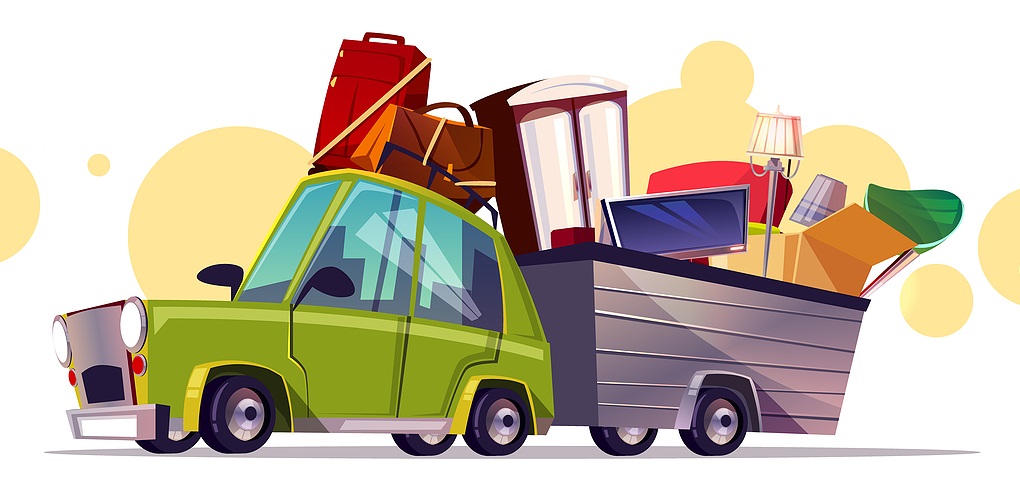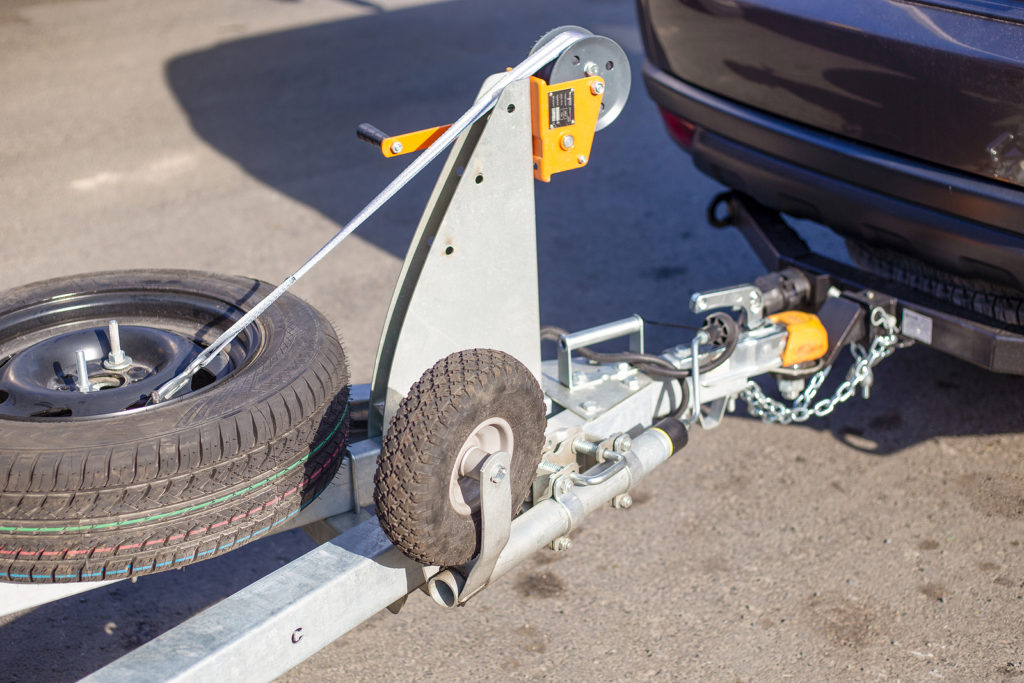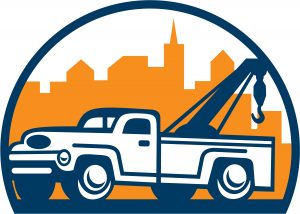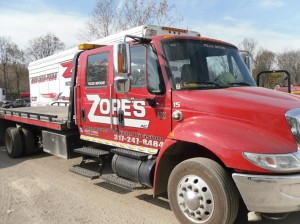Planning a road trip with a trailer or moving heavy equipment can be an exciting venture. But connecting a trailer to your car without understanding the vehicle’s towing capacity limits can lead to serious trouble. Using a car that isn’t strong enough for the job is not just a minor miscalculation; it’s a significant risk that can have severe consequences for your vehicle, your safety, and your finances.
Towing might seem straightforward, but it’s a task that demands careful planning and respect for your vehicle’s capabilities. Pushing your car beyond its designated towing capacity can lead to everything from expensive mechanical failures to dangerous accidents on the road.
This guide will walk you through the essentials of safe towing capacity, helping you understand the risks of overloading and why sometimes, calling a professional tow truck service is the smartest move you can make.
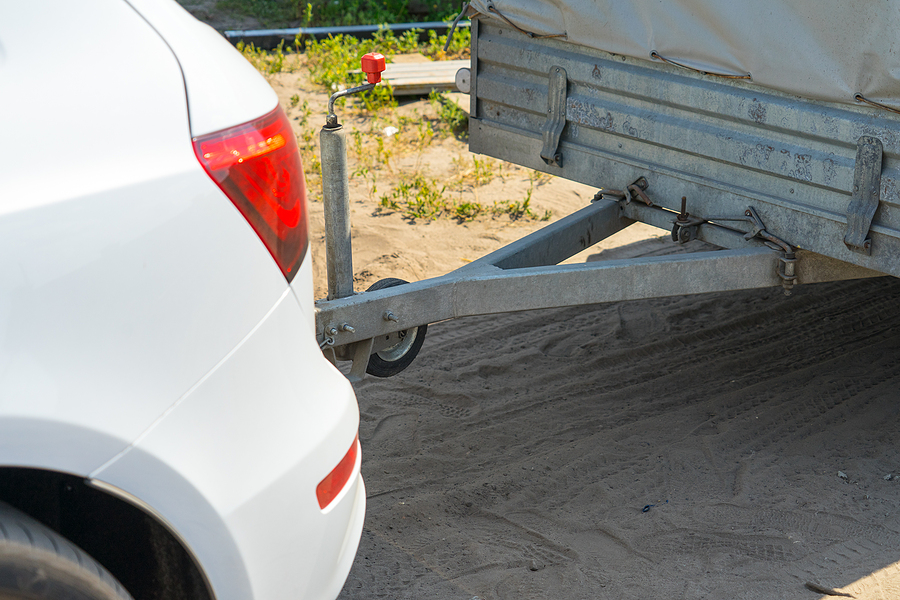
What is Towing Capacity and How Do I Find It?
Before you even think about attaching a trailer, you need to understand one of the most critical numbers associated with your vehicle: its towing capacity. This is the maximum weight your vehicle can safely pull. This figure is determined by the manufacturer and takes into account several factors, including the vehicle’s engine power, transmission, brakes, axle strength, and frame construction.
Exceeding this limit puts immense strain on your vehicle’s most important components. So, how do you find this crucial number? Look here:
▶ Owner’s Manual: This is the most reliable place to find your vehicle’s towing capacity. The manufacturer will provide a detailed breakdown, often with different capacities based on engine type and whether you have a towing package installed.
▶ Driver’s Side Door Jamb: Look for a sticker inside the driver’s side door. This label, often called the Safety Compliance Certification Label, lists various weight ratings, including the Gross Vehicle Weight Rating (GVWR) and Gross Combined Weight Rating (GCWR), which are used to calculate safe towing limits.
▶ Manufacturer’s Website: Most car manufacturers have this information readily available online. You can usually search by your vehicle’s model, year, and specific trim.
If you can’t find the information in these places, it’s possible your vehicle is not rated for towing at all. Never assume it’s safe to tow just because you can attach a hitch.
The Risks of Overloading Your Vehicle
Towing a load that’s too heavy for your vehicle is like asking a marathon runner to sprint with a backpack full of bricks—something is bound to give. The consequences range from inconvenient to catastrophic.
Severe Mechanical Damage
Overloading your vehicle puts a tremendous amount of stress on its mechanical systems.
- Transmission Failure: The transmission is often the first component to suffer. It can overheat while trying to handle the extra weight, leading to fluid breakdown and eventually, complete failure. A transmission replacement is one of the most expensive repairs a car owner can face.
- Engine Strain: The engine has to work much harder to pull the excess weight, which can cause it to overheat and lead to long-term damage like warped cylinders or blown head gaskets.
- Brake Damage: Your brakes are designed to stop the weight of your vehicle, not the weight of your vehicle plus a heavy trailer. The extra momentum can cause brakes to overheat, fade, or wear out prematurely, leaving you unable to stop in an emergency.
- Suspension and Frame Damage: The sheer weight can damage your suspension, axles, and even bend the vehicle’s frame, leading to costly and sometimes irreparable damage.
Serious Safety Hazards
Beyond the mechanical risks, overloading creates a dangerous situation on the road for you and everyone around you.
- Loss of Control: An overweight trailer can push the back of your vehicle around, a phenomenon known as “trailer sway.” This can make steering difficult and may lead to a complete loss of control, jackknifing, or a rollover.
- Longer Stopping Distances: As mentioned, your brakes won’t be as effective. You’ll need significantly more distance to come to a stop, which can be disastrous in sudden traffic or an emergency.
- Tire Blowouts: The extra weight puts more pressure on your tires than they are designed to handle, increasing the risk of a blowout, which can easily cause you to lose control of the vehicle.
Legal and Financial Implications
Ignoring towing capacity isn’t just unsafe; it’s often illegal.
- Fines and Penalties: If you’re pulled over and found to be exceeding your vehicle’s weight limits, you can face hefty fines. Law enforcement officers are trained to spot overloaded vehicles.
- Liability in an Accident: If you cause an accident while towing an overweight load, you could be held liable for damages and injuries. Your insurance company may even deny your claim, as you were operating the vehicle outside of its specified limits.
- Voided Warranty: If your vehicle is still under warranty, any damage caused by improper towing will likely not be covered by the manufacturer.
Contact Us for Immediate Professional Towing Service ✅
How to Practice Safe Towing
If you’ve confirmed your vehicle is up to the task, following safe towing practices is essential for a smooth journey.
1. Distribute Weight Correctly
How you load your trailer is just as important as how much you load. Aim to place 60% of the cargo weight in the front half of the trailer (closer to your vehicle) and 40% in the back. Also, ensure the load is centered side-to-side. Improper weight distribution is a primary cause of trailer sway.
2. Use the Right Towing Accessories
Having the right gear is non-negotiable.
- Hitch: Ensure your hitch is rated for the weight of your trailer.
- Safety Chains: Always cross the safety chains under the hitch. If the trailer detaches, the crossed chains will form a cradle to catch it, preventing it from veering into another lane.
- Brakes and Lights: Check state laws. Many states require trailers over a certain weight to have their own braking system. Ensure your trailer’s brake lights and turn signals are connected and working correctly.
3. Drive Differently
Towing changes how your vehicle handles.
- Reduce Speed: Drive slower than you normally would. Many states have lower speed limits for vehicles towing trailers.
- Increase Following Distance: You need more space to stop, so leave several car lengths between you and the vehicle ahead.
- Make Wider Turns: Your trailer will cut corners more sharply than your car, so take turns wider to avoid hitting curbs or other objects.
4. Perform Regular Checks
Before you leave and at every stop, do a quick inspection. Check your tires, make sure the hitch is secure, and confirm that your lights are working.
When to Call a Professional Towing Company
Sometimes, the safest and most efficient option is to leave it to the experts. If your vehicle’s towing capacity isn’t sufficient, or if you’re dealing with a particularly heavy or valuable load, a professional wrecker company like Zore’s Towing is your best choice.
Professional services have the right equipment and experienced operators to handle any vehicle towing job safely. They have powerful trucks designed specifically for heavy loads, and their drivers are trained to navigate challenging road conditions while towing. Using a professional tow truck service eliminates the risk of damaging your own vehicle and ensures your cargo arrives safely at its destination.
In Summary
Towing can be a useful skill, but it’s one that requires knowledge and preparation. Understanding your vehicle’s limits and practicing safe towing techniques are essential for protecting your vehicle, your cargo, and your life. Never take a chance with a load that’s too heavy. When in doubt, the smartest and safest decision is always to contact a professional for your towing needs.
If you need safe, reliable, and professional towing, contact Zore’s Towing today. From small tows and roadside assistance solutions to large, wrecker and recovery services, we have the advanced equipment and expertise to get the job done right.
Talk to a Towing Professional Now
Related Post: Towing Capacity: The Ultimate Guide to Understanding Your Vehicle’s Pulling Power

